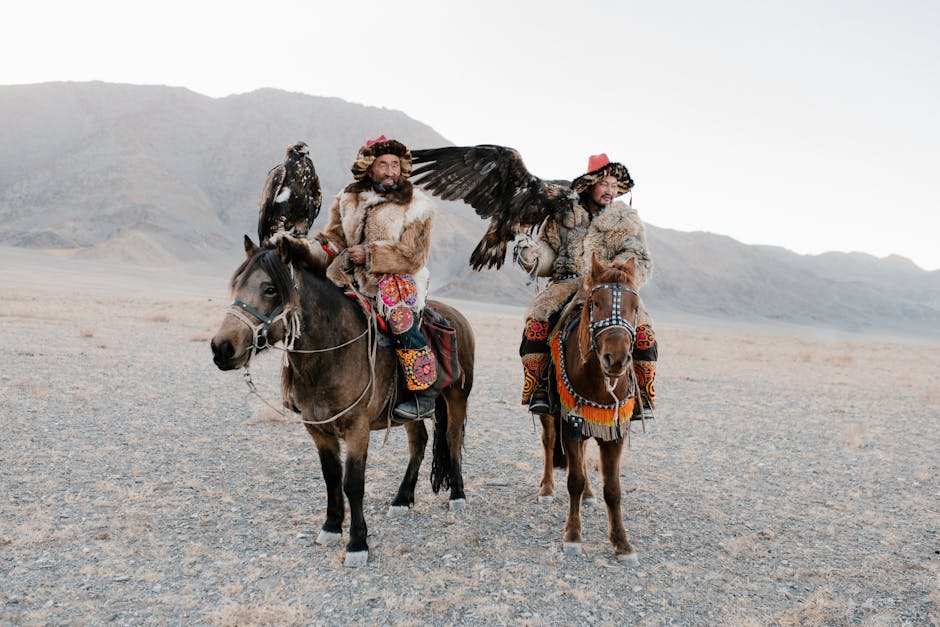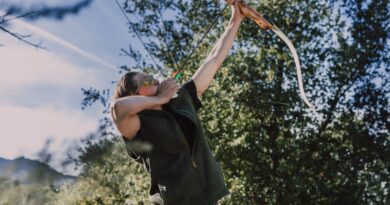Ethical Practices for Responsible Hunting: A Comprehensive Guide
When it comes to hunting, the ethical and responsible treatment of wildlife is a topic that often sparks heated debates and discussions. Advocates argue that hunting can be a necessary tool for wildlife management and conservation, while opponents raise concerns about animal welfare and the impact on ecosystems. In this article, we will delve into the world of ethical practices for responsible hunting, exploring the various dimensions of this complex issue and shedding light on the key considerations that hunters must keep in mind.
The History of Hunting: A Brief Overview

Hunting has been an integral part of human history for thousands of years, providing food, clothing, and tools for survival. Early humans relied on hunting to sustain themselves and their communities, using primitive weapons to hunt for game. Over time, hunting evolved from a necessity into a recreational activity, with people engaging in the sport for enjoyment and challenge.
However, as hunting practices became more sophisticated and widespread, concerns about the impact on wildlife populations and ecosystems began to emerge. The need for ethical guidelines and regulations to govern hunting practices became increasingly apparent, leading to the development of codes of conduct and standards for responsible hunting.
The Principles of Ethical Hunting

At the core of ethical hunting are a set of principles that guide hunters in their interactions with wildlife and the environment. These principles are designed to ensure the humane treatment of animals, respect for the natural world, and the sustainable management of wildlife populations. Let’s explore some of the key principles of ethical hunting:
1. Respect for Wildlife
One of the fundamental principles of ethical hunting is respect for the animals being hunted. Hunters are expected to treat wildlife with dignity and compassion, minimizing suffering and ensuring a quick and humane death. This means using appropriate hunting methods and equipment, such as firearms or bows, that are capable of delivering a swift and clean kill.
Furthermore, hunters should strive to use all parts of the animal harvested, minimizing waste and honoring the life of the animal that was taken. This principle of respect extends to the broader ecosystem as well, with hunters being encouraged to minimize their impact on the environment and take steps to preserve the natural habitats of wildlife.
2. Fair Chase
Another key principle of ethical hunting is the concept of fair chase. This principle emphasizes the idea that hunting should be conducted in a manner that gives the animals a chance to escape and evade the hunter, thus ensuring a fair and ethical pursuit. Fair chase hunting prohibits the use of unethical practices such as baiting, spotlighting, or using high-powered rifles that result in unfair advantages for the hunter.
By adhering to the principle of fair chase, hunters demonstrate their respect for the animals they pursue and uphold the integrity of the hunting experience. Fair chase hunting also helps to ensure that wildlife populations remain healthy and sustainable, as animals are not subjected to undue stress or pressure from hunters.
3. Wildlife Conservation
Ethical hunting is closely linked to wildlife conservation, as responsible hunters play a crucial role in the management and preservation of wildlife populations. Hunters are often involved in conservation efforts such as habitat restoration, wildlife research, and population control, working alongside government agencies and conservation organizations to ensure the long-term viability of species.
By participating in sustainable hunting practices and following regulations set forth by wildlife management authorities, hunters can help to prevent overpopulation, reduce conflicts between humans and wildlife, and maintain the balance of ecosystems. Ethical hunters understand the importance of conservation and actively contribute to efforts to protect and preserve the natural world.
The Role of Ethics in Responsible Hunting

Ethics play a central role in shaping the practices and behaviors of hunters, influencing their decisions and actions in the field. Ethical hunters are guided by a strong moral compass and a sense of responsibility towards the wildlife they pursue, the environment they inhabit, and the communities they are a part of. Let’s explore some of the ways in which ethics impact responsible hunting:
1. Personal Responsibility
Responsible hunters understand that they have a duty to act in a manner that upholds the values of ethical hunting and reflects positively on the hunting community as a whole. This sense of personal responsibility drives hunters to educate themselves about wildlife management practices, hunting regulations, and ethical guidelines, ensuring that they are well-informed and prepared to make ethical decisions in the field.
Personal responsibility also extends to the treatment of harvested animals, as hunters are expected to handle and care for the game they take in a respectful and conscientious manner. This includes properly field dressing and processing animals, handling firearms safely and responsibly, and following all laws and regulations related to hunting and wildlife conservation.
2. Environmental Stewardship
Ethical hunters are strong advocates for environmental stewardship, recognizing the importance of protecting and conserving natural habitats for wildlife and future generations. Hunters actively support conservation efforts through their participation in habitat restoration projects, wildlife surveys, and volunteer programs that aim to enhance the health and sustainability of ecosystems.
By incorporating principles of environmental stewardship into their hunting practices, hunters can help to mitigate the negative impacts of human activities on the environment, promote biodiversity and ecosystem resilience, and ensure that wildlife populations thrive in their natural habitats. Responsible hunters are committed to leaving a minimal footprint on the land and actively engage in efforts to preserve the natural world for future generations.
3. Community Engagement
Responsible hunting is not just about the individual hunter, but also about the broader hunting community and the relationships that hunters build with others who share their passion for the outdoors. Ethical hunters recognize the importance of community engagement and collaboration in promoting the values of ethical hunting and conservation.
Hunters often work together to advocate for policies that support wildlife conservation, share knowledge and expertise about hunting practices, and mentor new hunters to ensure that ethical standards are passed down through generations. By fostering a sense of community and camaraderie among hunters, ethical practices are reinforced and the hunting tradition is preserved for the future.
Debates and Controversies in Hunting Ethics

Despite the clear principles and guidelines that govern ethical hunting, debates and controversies surrounding hunting ethics continue to persist within the hunting community and the broader public. These debates often revolve around issues such as trophy hunting, animal rights, and the role of hunting in wildlife management. Let’s explore some of the key debates and controversies in hunting ethics:
1. Trophy Hunting
One of the most divisive issues in hunting ethics is the practice of trophy hunting, where hunters target large or rare animals for their impressive horns, antlers, or skins. While some argue that trophy hunting can provide valuable funding for conservation efforts and support local communities, others view it as a morally questionable activity that prioritizes the desires of hunters over the welfare of wildlife.
Proponents of trophy hunting argue that it can help to control wildlife populations, generate revenue for conservation programs, and incentivize local communities to protect wildlife habitats. However, critics argue that trophy hunting can lead to population declines, disrupt social structures within animal populations, and promote unethical practices such as canned hunting and poaching.
2. Animal Welfare
Concerns about animal welfare are central to debates about hunting ethics, with critics raising questions about the suffering and pain experienced by animals during the hunting process. While ethical hunters strive to minimize suffering and ensure a quick and humane kill, opponents argue that hunting inherently causes harm to animals and is therefore unethical.
Advocates for animal welfare in hunting call for stricter regulations on hunting practices, the use of non-lethal methods for wildlife management, and the adoption of technologies that minimize pain and suffering for animals. However, supporters of hunting maintain that ethical hunting can be conducted in a manner that respects the welfare of animals and contributes to conservation and wildlife management goals.
3. Wildlife Management
The role of hunting in wildlife management is a complex and controversial issue that is often at the heart of debates about hunting ethics. While some argue that hunting is a necessary tool for controlling wildlife populations, preventing overpopulation, and reducing conflicts between humans and wildlife, others question the efficacy and ethics of using hunting as a management strategy.
Proponents of hunting as a wildlife management tool point to the success of regulated hunting programs in maintaining healthy populations of game species, controlling invasive species, and funding conservation efforts. However, critics argue that hunting can have unintended consequences on ecosystems, disrupt natural processes, and lead to the decline of sensitive species that are targeted by hunters.
Expert Opinions on Ethical Practices for Responsible Hunting
Experts in the field of wildlife conservation and hunting ethics offer valuable insights into the principles and practices of ethical hunting. Let’s hear from some experts on their perspectives on ethical practices for responsible hunting:
Dr. Jane Goodall, Primatologist and Conservationist
“Ethical hunting is an essential component of responsible wildlife management and conservation. Hunters play a critical role in maintaining the balance of ecosystems, controlling wildlife populations, and preserving the natural world for future generations. By adhering to ethical guidelines and principles, hunters can make a positive impact on the environment and ensure the sustainable use of wildlife resources.”
Dr. Steven Rinella, Author and Host of MeatEater
“As a hunter and conservationist, I believe that ethical hunting is about more than just taking game animals. It’s about respecting the animals we pursue, the habitats they inhabit, and the traditions we uphold. Ethical hunters have a deep appreciation for the natural world and a commitment to preserving it for future generations. By following ethical practices and guidelines, hunters can contribute to the long-term health and sustainability of wildlife populations.”
Frequently Asked Questions about Ethical Practices for Responsible Hunting
Q: What are some common ethical guidelines for hunters?
A: Some common ethical guidelines for hunters include respecting wildlife, practicing fair chase, using legal and ethical hunting methods, obeying hunting regulations, and minimizing waste by utilizing all parts of harvested animals.
Q: How can hunters contribute to wildlife conservation efforts?
A: Hunters can contribute to wildlife conservation efforts by participating in habitat restoration projects, supporting conservation programs, volunteering for wildlife surveys, and advocating for policies that promote sustainable hunting practices and habitat protection.
To Wrap Things Up
In conclusion, ethical practices for responsible hunting are essential for ensuring the humane treatment of wildlife, the conservation of natural habitats, and the preservation of hunting traditions for future generations. By adhering to principles of respect, fair chase, and wildlife conservation, hunters can make a positive impact on the environment and contribute to the long-term sustainability of wildlife populations. It is important for hunters to educate themselves about ethical guidelines, follow hunting regulations, and engage in conservation efforts to promote the values of ethical hunting and responsible wildlife management.




